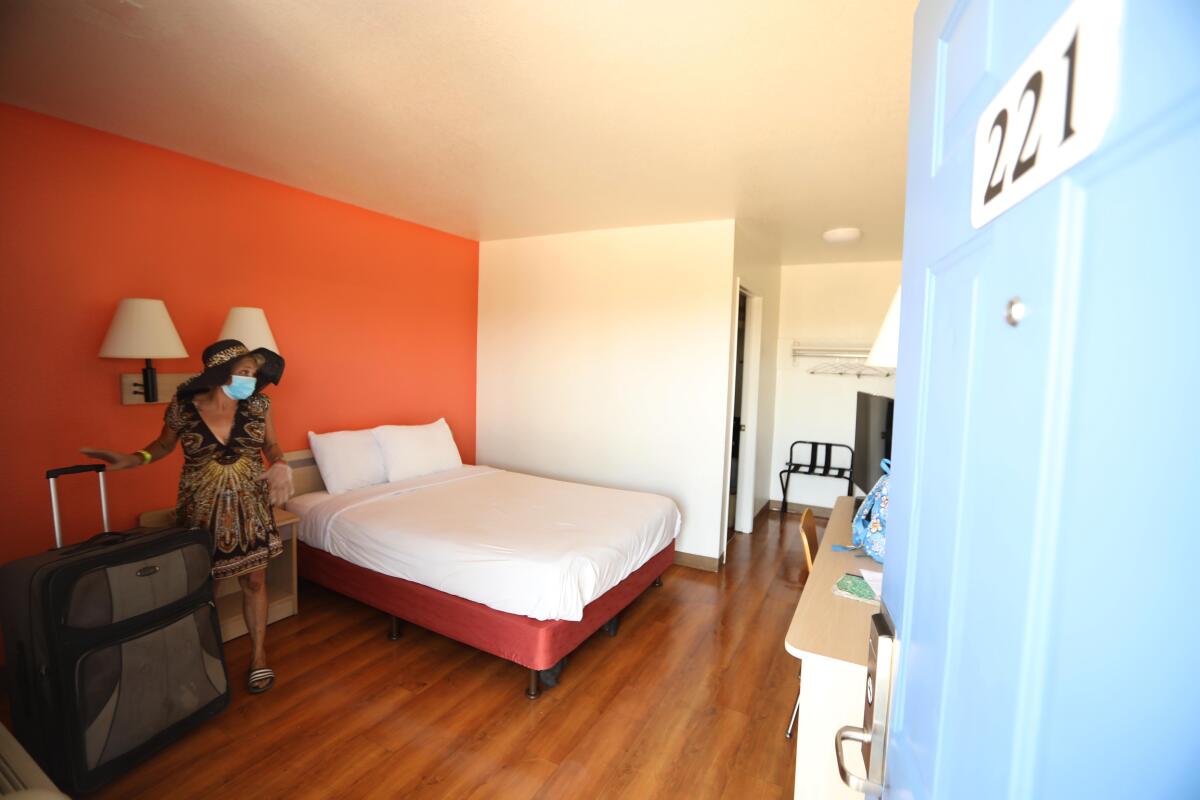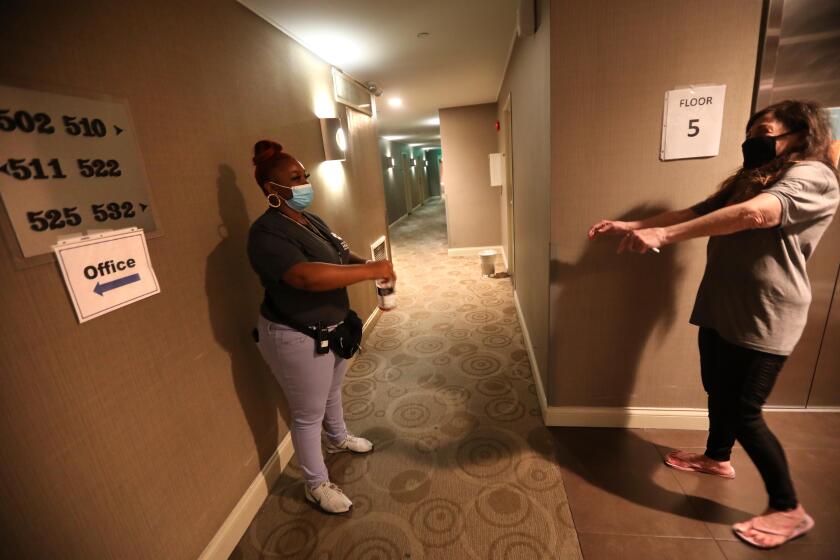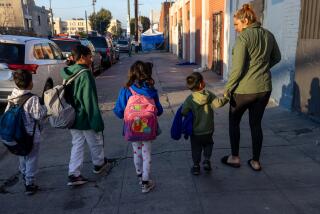Feds extend funding through spring to help L.A. house homeless people in hotels

- Share via
Throughout the pandemic, the city and county of Los Angeles have rented thousands of hotel rooms for homeless people at risk of contracting the coronavirus.
This massive effort was partially made possible by the federal government’s willingness to reimburse local governments for each dollar they spent renting the rooms and repurposing hotels into temporary housing.
The Federal Emergency Management Agency’s reimbursement of costs associated with sheltering people in individual rooms was slated to run through the end of the year.
President Biden announced this week that his administration would continue to pay these bills through the end of March 2022.
The city and county still have nearly 1,400 rooms rented in nine hotels for homeless people as of this month, according to the Los Angeles Homeless Services Authority.
The county operates two of the hotels and is reviewing the FEMA extension and how it might affect its plans to continue using the sites, which hold 284 beds.
The rooms have been a lifeline for thousands of people who had either been staying on the streets or in large bunk-style shelters, which became hotbeds of community transmission throughout the COVID-19 pandemic. Though some homeless people chafed at the rules about the hours they could enter and what they could bring into the hotels, many preferred them to the larger congregate shelters.
The hotels have also been used as interim housing for people who had been staying at parks and locations such as the Venice boardwalk that elected officials have been trying to clear of encampments. In Venice, Echo Park and MacArthur Park, homeless services providers conducted months of concerted outreach to get people into hotels, making the clearing of large encampments possible.
Project Roomkey, a state program backed by federal dollars, was intended to house homeless people during the pandemic. But it never got close to its goal.
Since its launch, the hotel sheltering program known as Project Roomkey has moved about 9,000 people in L.A. County into private rooms. More than 2,000 of them transitioned into permanent homes. But, peaking at just over 4,200 rooms, it never got close to an ambitious goal of securing rooms for all the estimated 15,000 eligible homeless people who were either 65 or older or had a medical condition that made them vulnerable to the coronavirus. This subset of people accounted for about one-quarter of all homeless people countywide.
Initially, when the pandemic began, the county was renting the majority of the rooms. That pendulum swung in the spring, and now the city is renting nearly all of them. In March, L.A. Mayor Eric Garcetti signed off on moving $75 million from the Department of Building and Safety Enterprise Fund to rent hotels.
The money helped expand the number of rooms under lease even as the city was slow to submit applications for reimbursements of costs. In recent months, city officials have been sketching out a plan to begin closing the sites. They want to spread the process out over several months to make it possible for homeless services providers to find permanent housing for the people leaving the hotels.
Under the current plan, which was put together before the FEMA announcement, two hotels would close in December, one in January, three in February and the last one at the end of March. The city was anticipating it would “receive up to $28 million in state funding through the county of Los Angeles to partially fund the Project Roomkey costs not reimbursed by FEMA,” according to city documents.
It’s not clear how the changes to the reimbursement scheme will alter this timetable. City officials didn’t immediately comment on their plans for the program — though they have said they want to continue it as long as is financially feasible.
“The city will make the most of this opportunity to house as many unhoused Angelenos as possible and prepare them for a successful transition into permanent housing,” Councilman Kevin de León said in a written statement.
He replaced Councilman Mark Ridley-Thomas as the chair of the council’s Homelessness and Poverty Committee after Ridley-Thomas was indicted on federal bribery charges and suspended by his colleagues.
More to Read
Sign up for Essential California
The most important California stories and recommendations in your inbox every morning.
You may occasionally receive promotional content from the Los Angeles Times.








